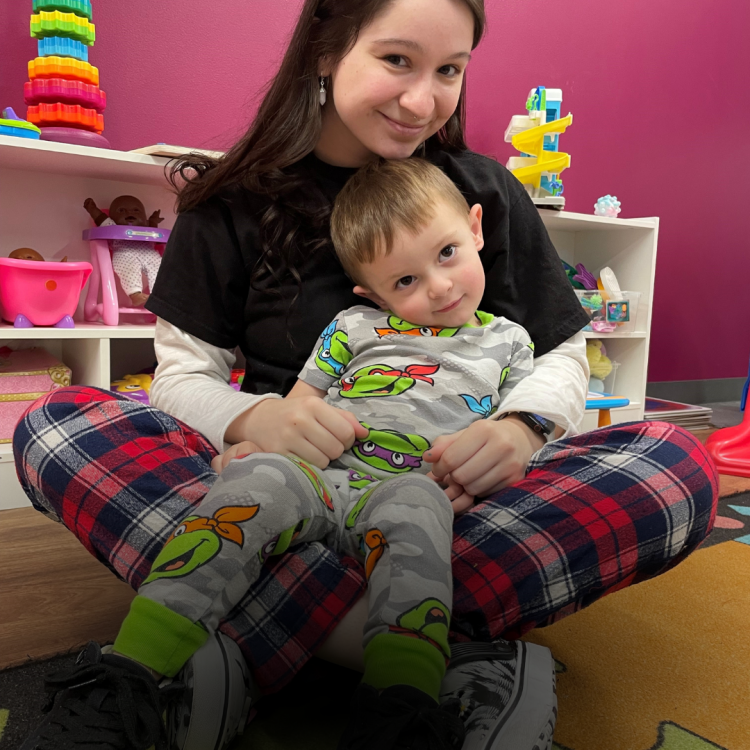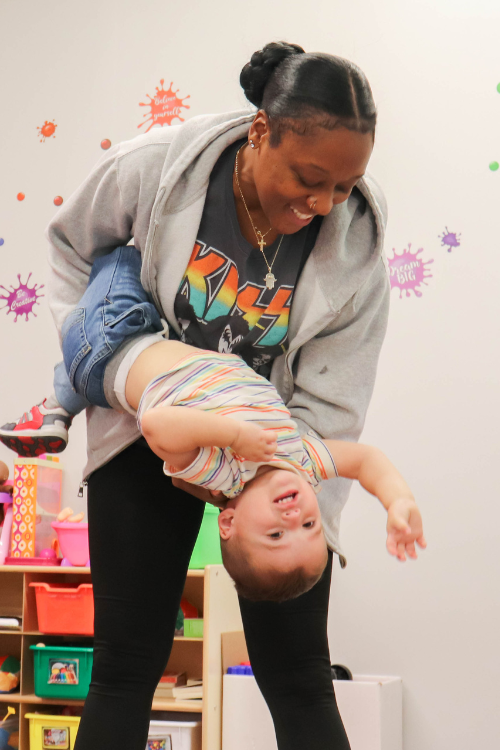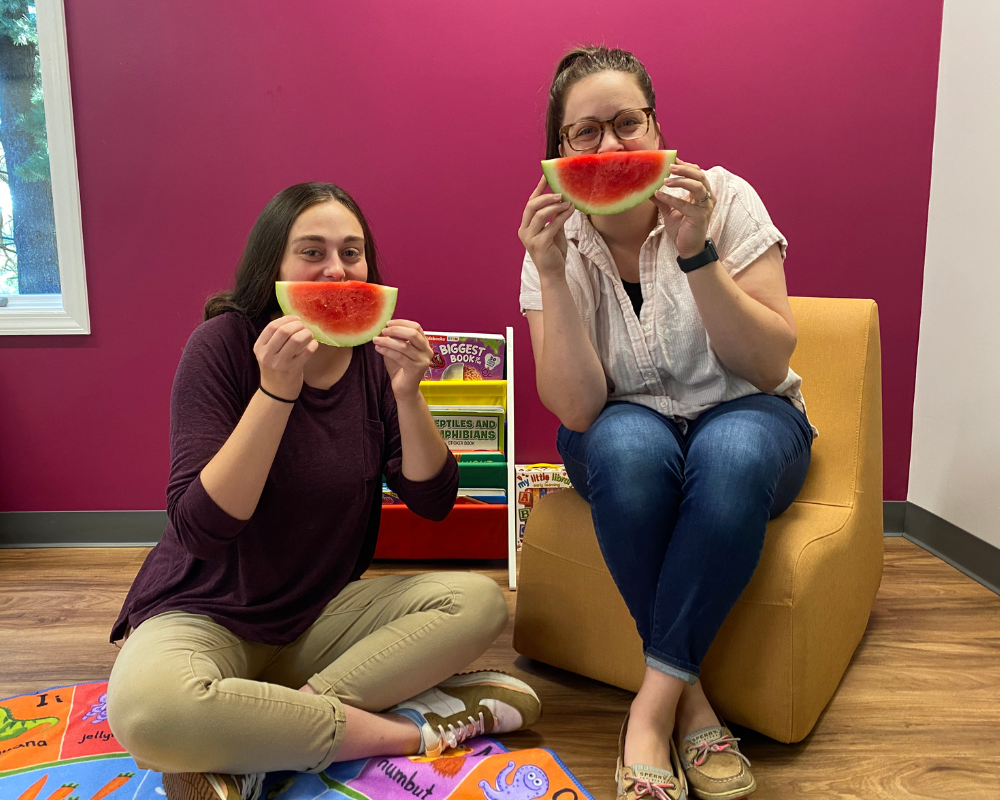Should I Become an RBT ?
Discover an Exciting New Career
Registered Behavior Technicians (RBT) help children with autism by implementing behavior plans specifically developed for each child. The RBT role offers both immediate job security and future growth potential!
- Role: Provide one-on-one care to children for teaching communication, practicing daily living skills, and encouraging positive behaviors through play-based therapy.
- Pay Range: $19 to $22 an hour.
- Job Responsibilities: Through play-based therapy tactics, an RBT manages a care plan, observes a child’s response, and takes notes on a child’s goal progression.


Requirements, Experience, and Training
HHF Offers Paid RBT Training
The training program includes 4 weeks of training, shadowing, supervision, and the required 40-hour online training course. We pay you to learn!
RBT Exam Cost Reimbursed
After training, you take the standard required RBT exam. After you pass the exam, HHF reimburses you for the exam cost!
Other RBT Requirements
- Be at least 18 years old
- Have at least a high school diploma
- Pass a criminal background check
- Demonstrate a passion for helping children
The Benefits of Being an RBT

High Demand & Job Security
More and more RBTs are needed to help the 1 in 36 children diagnosed with autism, which makes the demand for RBTs consistently high. Intensive therapies like Applied Behavior Analysis (ABA) involve 1-on-1 sessions that may last over 5 hours providing RBTs with job security due to consistent demand.
Financial Stability
The average salary for a new Registered Behavior Technician is $44,000 per year. This is above the average entry level salary of $30,000. While the average salary can vary depending on location and experience, there is salary growth opportunity through career progression.


Purpose-Driven Job
Working as an RBT can be personally fulfilling. In each session, you see a child’s daily progress and growth. Helping kids achieve their goals and develop new skills makes a positive and lasting impact on their lives and the lives of their families!
Skill Development
Working as an RBT allows you to develop valuable skills such as behavior management, data collection, communication, and collaboration. These skills can transfer to other professions, enhance your resume, and boost your professional development.


Career Growth
An RBT role can lead to various careers in the psychology, education, and behavior therapy fields. Many RBTs become Board Certified Behavior Analysts (BCBAs), which offers greater impact and earning potential. At Helping Hands Family, our RBTs have also moved into intake, training, and quality assurance roles.
Fun Work Environment
Imagine your workday being centered around playing with children! For RBTs, that is a reality. ABA Therapy is a play-based approach to therapy, so many of the sessions involve games, play-time, and activities that help children develop social, cognitive, and motor skills.

Quotes from the Helping Hands Family RBTs
“I love working at HHF because every day is a new adventure! I have a supportive, amazing environment that I work in every day. I get to celebrate every success with my entire team.”
Kelsey
RBT, Lehigh Valley
“There is so much potential for growth here at HHF. Since starting, every person has wanted to see me succeed in my field and grow in my position. … There are also opportunities for furthering your education with HHF, which can help you become a BCBA and more!”
Melody
RBT, Mt. Laurel
“My favorite part is knowing that I’m making a difference in the kids’ lives. I love hearing the feedback from their parents about how the child is starting to communicate at home or establishing enough social skills to make a new friend. It’s exciting and rewarding to be in this field!”
Megan
RBT, Paoli
A Typical Day for an RBT

Pre Session
Morning Prep – RBTs typically start their shift by reviewing the treatment plan and goals for the children they’re seeing for the day. This prep also includes gathering materials and resources needed for the day’s sessions.
Session Mapping — Before each session, RBTs may meet with the supervising Board Certified Behavior Analyst (BCBA) to review notes from the previous session and discuss the upcoming session’s objectives and strategies.
During Sessions
Conducting Sessions –The bulk of an RBT’s day is spent in session with kids, which can include one-on-one or small group activities with clients. RBTs implement behavior plans, personalized teaching strategies, and reinforcement techniques to help kids acquire new skills or reduce challenging behaviors.
Data Collection — During sessions, RBTs continuously collect data on the individual’s behavior and progress. This data is crucial for tracking outcomes, modifying treatment plans, and reporting progress to both BCBAs and caregivers.


Post Sessions
Documentation – After each session, RBTs may spend time documenting session notes, progress reports, and changes in behavior. This documentation is essential for tracking progress.
End of Day Review — The end of the day may include reviewing the progress made during sessions and discussing necessary adjustments to the treatment plan with a BCBA or supervisor.
Why Choose HHF
At Helping Hands Family, we provide a healthy work environment and put our employees in the best situations to serve the children in our clinics. Below are reasons to choose HHF for your career growth!
- “Great Place to Work-Certified” with 94% of our employees being made to feel welcome.
- Paid RBT certification. Our RBT education offers thorough training, observation, and clinical mentoring. This program has generated a 95% average pass rate on the RBT Exam!
- Potential career growth. Registered Behavior Technicians have been promoted to roles across the company, including BCBAs, Care Coordinators, and Billing Specialists.






